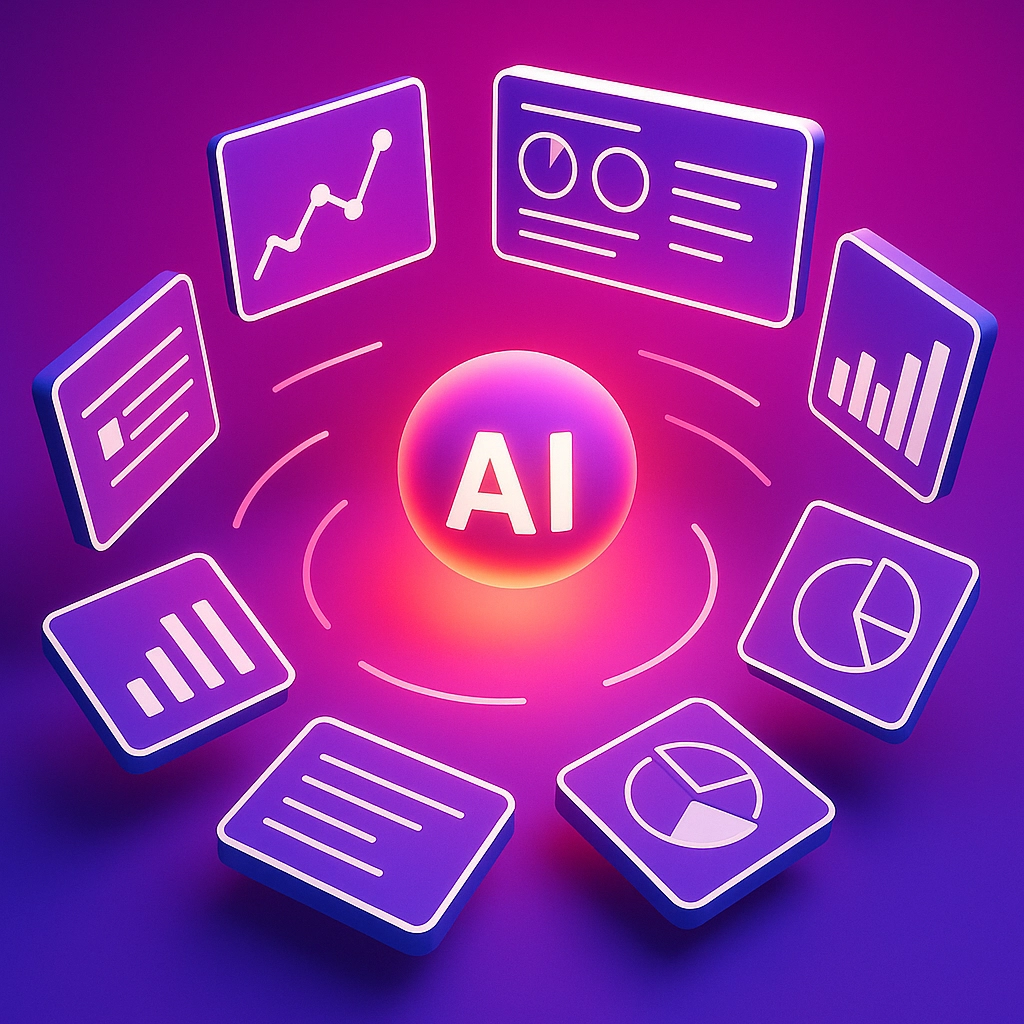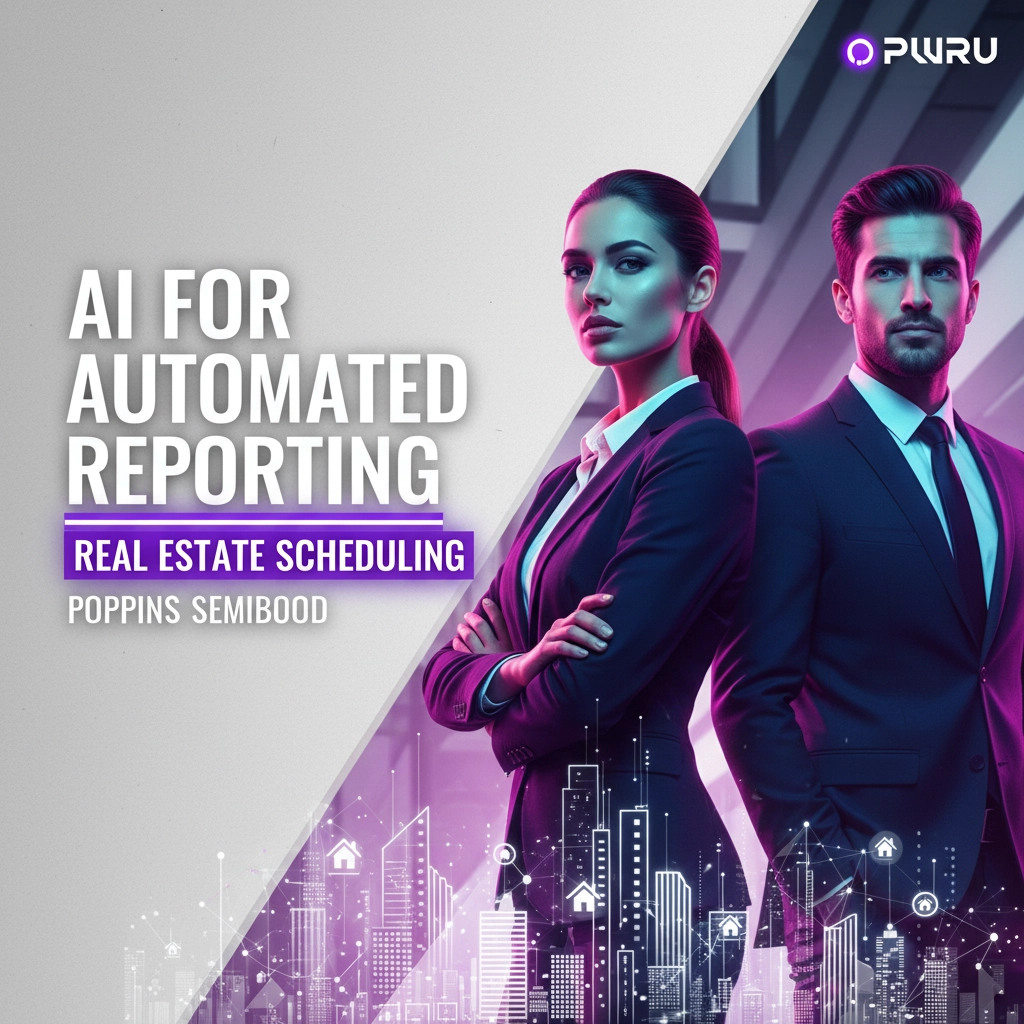Real estate professionals waste 40-50 hours weekly on administrative tasks. AI changes this equation entirely.
Automated reporting systems now handle scheduling workflows, inspection documentation, and client follow-up without human intervention. The technology generates comprehensive reports while managing complex calendar coordination across teams.
How AI Transforms Schedule Management
AI scheduling systems operate beyond basic calendar management. They analyze lead behavior patterns, predict optimal meeting times, and automatically adjust appointments based on priority scoring.

The system processes incoming requests 24/7. When a lead submits an inquiry, AI agents immediately:
- Check agent availability across multiple time zones
- Cross-reference property showing schedules
- Send personalized confirmation messages
- Update CRM records automatically
- Set follow-up reminders based on lead temperature
Teams using comprehensive AI scheduling report 300% faster lead response times. This speed advantage directly correlates with higher conversion rates. The system eliminates phone tag and reduces booking friction for potential clients.
Automated Inspection Report Generation
Property inspections generate massive amounts of data. AI processes this information instantly, creating standardized reports without manual compilation.
The technology extracts key findings from:
- Digital inspection tools
- Photo documentation
- Contractor assessments
- Compliance checklists
- Historical property data
AI agents organize observations into professional formats. They categorize issues by severity, estimate repair costs, and flag potential deal-breakers automatically. The system applies consistent formatting rules across all reports, ensuring professional presentation every time.

This automation reduces report creation time by 80%. Agents receive comprehensive documentation within hours instead of days. The consistency eliminates formatting errors and ensures nothing gets overlooked during busy periods.
Real-Time Performance Analytics
AI reporting extends beyond individual transactions. The technology analyzes scheduling patterns across entire teams, identifying optimization opportunities.
Key metrics include:
- Appointment-to-closing ratios by agent
- Optimal meeting times by market segment
- Seasonal booking pattern analysis
- Lead response time correlation with conversion
- Geographic performance mapping
These insights reveal which strategies work best. Brokers can adjust team schedules based on data-driven recommendations rather than intuition.
Integration With Existing Systems
Modern AI reporting platforms connect with established real estate tools. They sync seamlessly with:
- MLS databases
- CRM systems like Salesforce and HubSpot
- Calendar applications (Google, Outlook, Apple)
- Transaction management platforms
- Accounting software
- Marketing automation tools
This integration eliminates data silos. Information flows automatically between systems, reducing duplicate entry and ensuring accuracy across platforms.

The technology also handles complex scheduling scenarios. When showing appointments conflict with inspection schedules, AI automatically suggests alternative time slots. It considers drive time, agent preferences, and client availability simultaneously.
Automated Follow-Up Workflows
Post-meeting follow-up determines transaction success. AI systems track every interaction and trigger appropriate responses based on predetermined rules.
The automation includes:
- Thank you messages within two hours of meetings
- Property information packages for interested buyers
- Market analysis reports for potential sellers
- Inspection scheduling for serious prospects
- Financing pre-approval reminders
- Contract deadline notifications
Each touchpoint gets measured and optimized. The system learns which follow-up sequences produce the highest conversion rates and adjusts messaging accordingly.
Compliance and Documentation Management
Real estate transactions require extensive documentation. AI systems automatically generate compliance reports for regulatory requirements.
The technology tracks:
- Fair housing compliance metrics
- Disclosure delivery confirmation
- Contract deadline adherence
- Inspection report completeness
- Commission split calculations
- Transaction timeline documentation
This automated tracking reduces liability risk. Every action gets timestamped and recorded, creating an audit trail for complex transactions.

Cost-Benefit Analysis
Implementation costs vary by team size and feature requirements. However, the ROI calculations remain consistent across markets.
Average time savings:
- 15 hours weekly on scheduling coordination
- 10 hours weekly on report generation
- 8 hours weekly on follow-up management
- 5 hours weekly on data entry tasks
At $50 per hour for administrative work, teams save $1,900 weekly in labor costs. Annual savings exceed $98,000 for small brokerages. Larger organizations see proportionally higher returns.
The technology also improves conversion rates. Faster response times and consistent follow-up increase deal closure by 25% on average. This revenue impact often justifies implementation costs within 90 days.
Implementation Strategies
Successful AI adoption requires systematic planning. Teams should start with high-impact areas before expanding functionality.
Phase 1: Basic scheduling automation
Phase 2: Simple report generation
Phase 3: Advanced analytics integration
Phase 4: Custom workflow development
Training requirements remain minimal. Most systems use intuitive interfaces that require less than four hours of initial setup. Ongoing maintenance involves rule adjustments rather than technical programming.

Future Development Trends
AI reporting capabilities continue expanding. Emerging features include:
- Predictive market analysis integration
- Voice-activated scheduling commands
- Advanced natural language processing for client communication
- Blockchain integration for transaction verification
- Virtual reality showing coordination
These developments will further streamline operations while improving client experiences.
Measuring Success
Effective implementation requires specific performance metrics. Teams should track:
- Time reduction in administrative tasks
- Lead response speed improvements
- Conversion rate changes
- Client satisfaction scores
- Revenue per agent increases
Regular measurement ensures the technology delivers expected results. Most successful implementations show measurable improvements within 60 days.
Getting Started
PWRU’s Pulse Intelligence platform integrates AI scheduling and reporting into existing workflows seamlessly. The system handles complex real estate scenarios while maintaining the personal touch clients expect.
Agents using Pulse Intelligence report significant productivity gains without sacrificing service quality. The platform learns individual preferences and adapts to unique business models.
Ready to transform your scheduling and reporting processes? Explore PWRU’s AI solutions and discover how automation can accelerate your real estate success.
AI-powered reporting represents the future of real estate operations. Teams that adopt these systems now gain competitive advantages that compound over time. The technology eliminates busy work while improving client outcomes. Smart implementation today positions businesses for sustained growth tomorrow.





